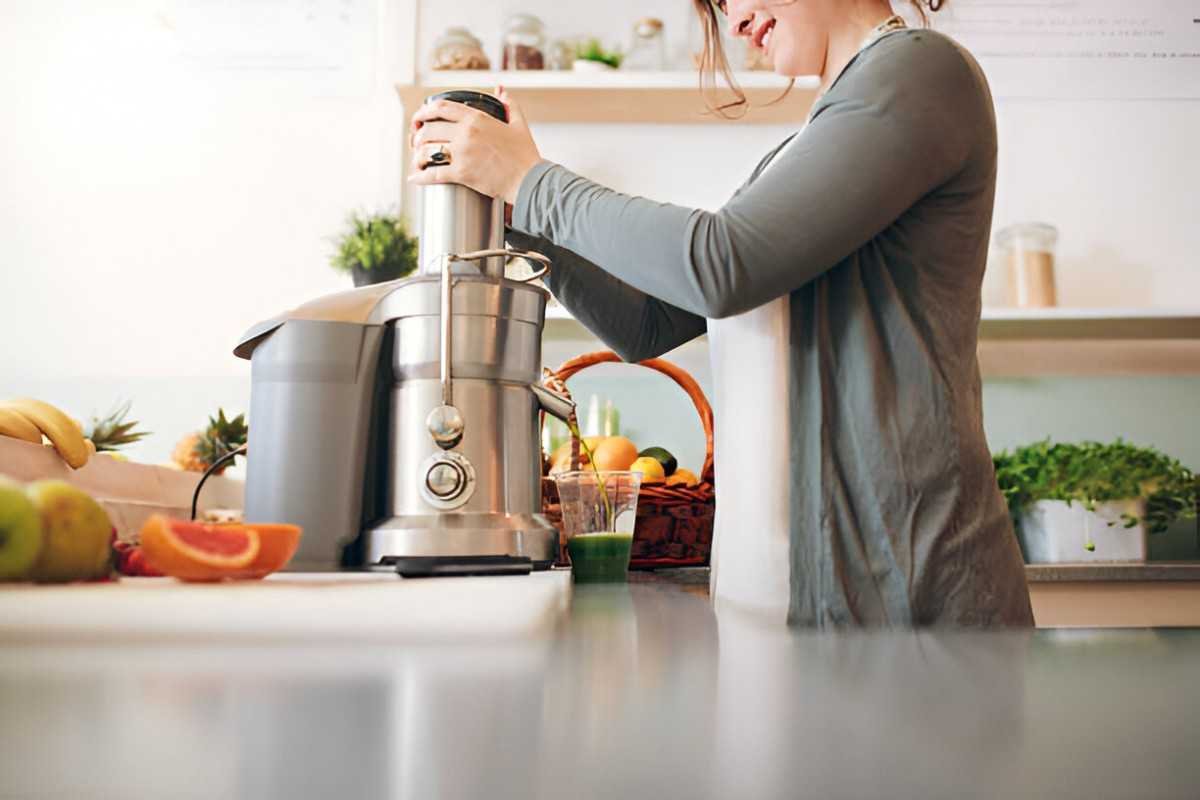When it comes to living a healthier lifestyle, few appliances are as transformative as a juicer. Whether you want to kickstart your mornings with a glass of fresh orange juice or experiment with nutrient-packed green juices, finding the right juicer can make all the difference. Over the years, I’ve tried and tested numerous juicers, and I’ve come to understand that the best choice isn’t always straightforward. This guide will walk you through everything you need to know to buy the best juicer for your needs.
Table of Contents
Why Should You Invest in a Juicer?
Juicing is a fantastic way to incorporate more fruits and vegetables into your diet. A glass of fresh juice delivers a concentrated dose of vitamins, minerals, and antioxidants that can support your immune system, improve digestion, and boost your energy levels. While store-bought juices are convenient, they often contain added sugars and preservatives. Making juice at home ensures you’re getting a healthier, fresher product.
A juicer is an investment, not just in your kitchen but also in your health. But with so many options available, it can be overwhelming to choose one. Let’s break down the factors you need to consider.
Types of Juicers: Which One is Right for You?
Not all juicers are created equal. There are three main types of juicers, and each has its strengths and weaknesses.
1. Centrifugal Juicers
Centrifugal juicers are some of the most common and affordable options. They use a fast-spinning blade to extract juice from fruits and vegetables. These juicers are quick and easy to use but may not be as efficient with leafy greens or soft fruits.
Pros:
- Affordable
- Fast juicing process
- Easy to clean
Cons:
- Less efficient with leafy greens
- Juice may oxidize faster due to heat
2. Masticating Juicers
Also known as slow juicers, masticating juicers crush and press ingredients to extract juice. They operate at a slower speed, preserving more nutrients and producing a higher yield.
Pros:
- Excellent for leafy greens and soft fruits
- Retains more nutrients
- Quiet operation
Cons:
- Slower process
- Higher price point
3. Twin-Gear Juicers
Twin-gear juicers are the premium option. They use two gears to crush ingredients, extracting the maximum amount of juice and nutrients. These juicers are ideal for those serious about juicing.
Pros:
- Highest juice yield
- Best nutrient retention
- Handles a wide variety of produce
Cons:
- Expensive
- Complex to clean
Comparison Table: Juicer Types
| Feature | Centrifugal Juicers | Masticating Juicers | Twin-Gear Juicers |
|---|---|---|---|
| Speed | Fast | Moderate | Slow |
| Nutrient Retention | Moderate | High | Very High |
| Price Range | $50 – $200 | $150 – $400 | $400 – $1,000+ |
| Best For | Beginners, quick use | Health enthusiasts | Serious juicers |
| Ease of Cleaning | Easy | Moderate | Complex |
Key Features to Look for in a Juicer
1. Ease of Use
Your juicer should be simple to assemble, operate, and clean. A complicated machine can discourage regular use. Look for models with fewer parts and dishwasher-safe components.
2. Juice Yield
Not all juicers extract the same amount of juice. Masticating and twin-gear juicers generally produce more juice from the same amount of produce, which can save you money in the long run.
3. Size and Storage
Consider your counter space and storage needs. Centrifugal juicers tend to be more compact, while masticating and twin-gear models are bulkier.
4. Noise Level
If you’re an early riser or live with others, noise could be a factor. Masticating juicers are quieter than centrifugal models.
5. Versatility
Some juicers can do more than just juice. Look for models that double as food processors, allowing you to make nut milk, baby food, or even pasta.
6. Build Quality
Investing in a well-built juicer made from durable materials like stainless steel ensures your appliance will last longer.
Comparing Popular Juicer Models
Here’s a closer look at some of the most popular juicer models on the market.
1. Breville Juice Fountain Plus (Centrifugal)
This model is perfect for beginners. It’s affordable, efficient, and easy to clean.
| Feature | Details |
|---|---|
| Price | $150 |
| Type | Centrifugal |
| Noise Level | High |
| Juice Yield | Moderate |
2. Omega NC900HDC (Masticating)
A versatile and efficient masticating juicer, it’s great for those looking to juice regularly.
| Feature | Details |
|---|---|
| Price | $350 |
| Type | Masticating |
| Noise Level | Low |
| Juice Yield | High |
3. Tribest Greenstar Elite (Twin-Gear)
This premium model is for serious juicers who prioritize quality and nutrient retention.
| Feature | Details |
|---|---|
| Price | $700 |
| Type | Twin-Gear |
| Noise Level | Low |
| Juice Yield | Very High |
Tips for Getting the Most Out of Your Juicer
- Prep Your Produce: Wash and cut your fruits and vegetables into smaller pieces to make juicing smoother.
- Alternate Ingredients: When juicing leafy greens, alternate them with harder produce like carrots to prevent clogging.
- Clean Immediately: Cleaning your juicer right after use prevents pulp from drying and makes the process much easier.
- Experiment with Recipes: Don’t stick to the basics. Try mixing fruits, vegetables, and herbs to create unique flavors.
Conclusion: My Final Thoughts
Choosing the best juicer depends on your specific needs, budget, and lifestyle. If you’re just starting, a centrifugal juicer like the Breville Juice Fountain Plus is a great option. For those more invested in health, a masticating juicer like the Omega NC900HDC offers excellent value. Finally, if you’re all-in on juicing, the Tribest Greenstar Elite provides unmatched quality and performance.
Remember, the best juicer is the one you’ll actually use. Take your time to assess your priorities and make an informed decision. Happy juicing!





